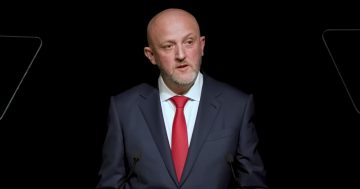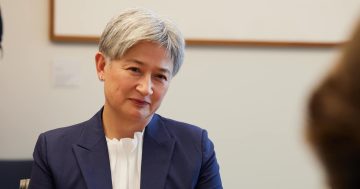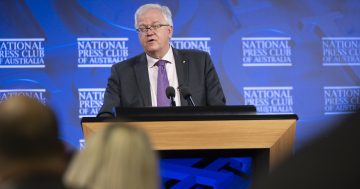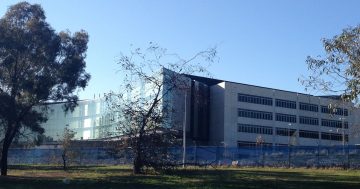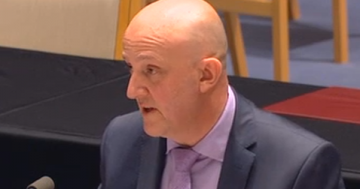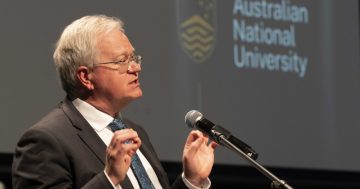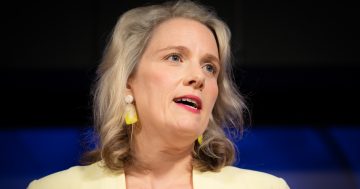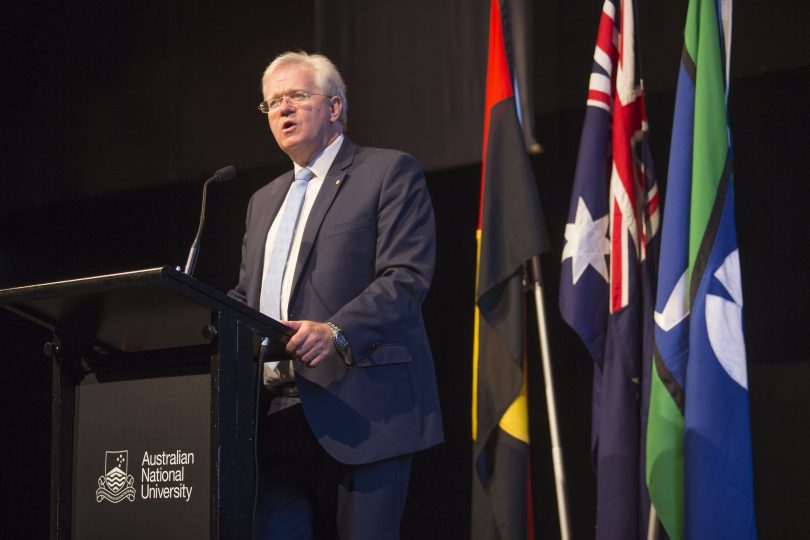
Vice-Chancellor Brian Schmidt said it is a challenge to monitor students reported to their home country’s authorities for expressing controversial opinions. Photo: File.
ANU Vice-Chancellor Brian Schmidt has admitted that it is challenging to protect some international students from being reported to their embassy when they express views that are problematic in their home country.
Appearing before a Parliamentary Joint Committee on Intelligence and Security on Friday (19 March), Professor Schmidt said students from certain countries often profess views that would be controversial at home, and if those conversations are recorded and used to coerce students, the matter is beyond the university’s control.
“If a student chooses to make statements that are counter to their home nation’s views, we have a great deal of challenge in not having that recorded and used against them or their family at home,” he said.
“We are open to working with the [Australian] government about how to minimise the effects of that. It is an existential threat to the type of things we do on campus so we are concerned about it.”
Professor Schmidt said that the university continues to work on a safe and secure digital environment – including cybersecurity – and integrating students into the broader community to avoid them being socially restricted on the university campus.
But appearing before the same committee last week, Human Rights Watch researcher and former Walkey-winning investigative journalist, Sophie McNeill, said that universities across Australia need to create a sector-wide policy to counter foreign interference and better protect international students who are susceptible to coercion from their own governments.
This would allay concerns from universities about being picked off or punished if they are seen to push back on some of these issues, she said.
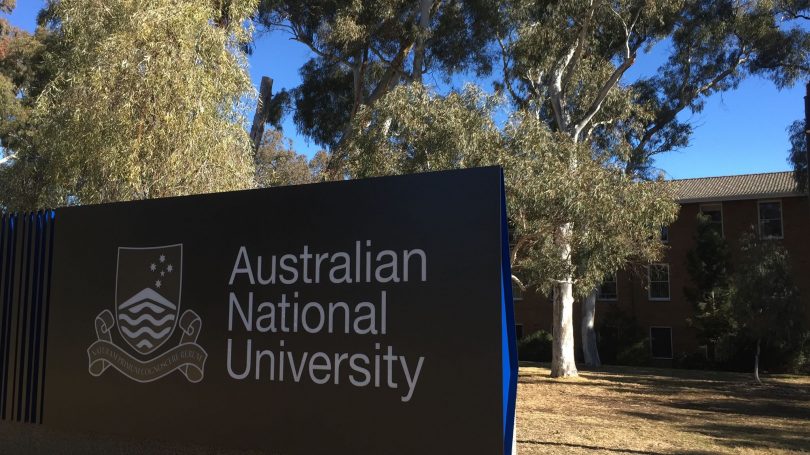
The Australian National University (ANU) said academic freedom is protected in its code of conduct, which all students are bound by. Photo: File.
Ms McNeill said there was anxiety about standing up to countries such as China which contributed to a lack of help or recourse for international students who fear being reported to their government for things they say or do in class.
“A large majority of students we interviewed who suffered harassment and intimidation did not report this to the universities. When we asked them why they said that they did not feel that the universities could do anything or that they did not care,” she said.
Universities need to investigate incidents of harassment and intimidation against international students and discontinue a culture of reticence against China, she said.
“We want some really blunt plain talking so these incidents are called out for what they are. There is no deterrence at the moment.”
The comments came as ASIO Director-General Mike Burgess told the committee that Australia’s domestic intelligence agency is aware of who was behind the cyberattack against the ANU in 2018 but would not make the information public.
Senior intelligence sources have been quoted naming China as the adversary, but Department of Home Affairs deputy secretary Marc Ablong said media reports did not mean the Department could prove anything definitively.
“You need to be more than certain that you know who the actor is before you name them because there are consequences for naming, not just for the actor involved, but for the country that does the naming,” he said.
Mr Burgess said the agency was monitoring a group of countries that Australia is concerned about, including “one country, in particular, [which] is highly active.”
Mr Burgess would not name any of the countries but said they numbered less than 10 and that the most prolific country was “not alone in that endeavour”. He said that foreign interference in Australia is at a level “not seen since the Cold War”.
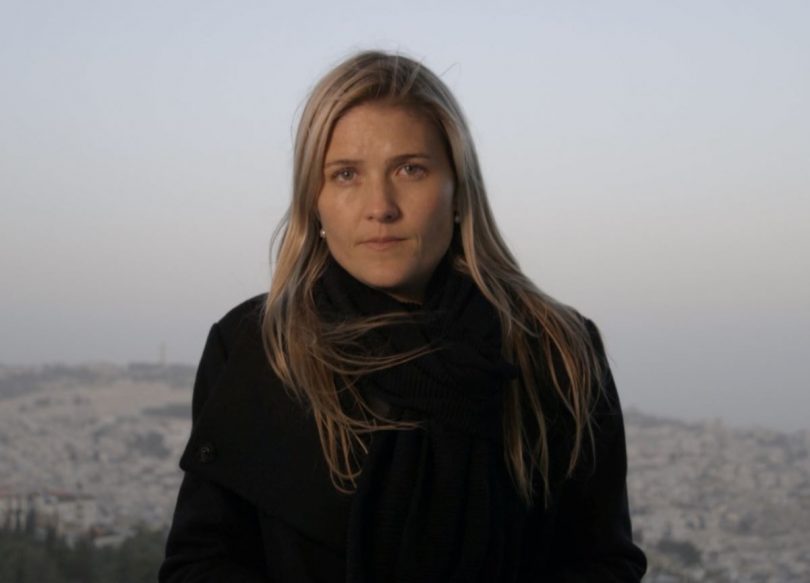
Sophie McNeill said anxiety about standing up to China contributed to a lack of help or recourse for international students. Photo: HRW.
An ANU spokesperson told Region Media that the university was working on foreign interference and foreign influence for many years and that it works closely with and regularly consults government agencies on this issue.
Under the current code of conduct, students are bound to respect the right to free and unfettered debate and respectful exchange of ideas at our campus, and that a student should report any breach of this to the university, the spokesperson said.
When asked whether students would face discipline if they report someone to their home countries authorities for engaging in academic debate, the spokesperson said that academic freedom is protected in the code of conduct.
“Members of our community are entitled and encouraged to share their views and to disagree with the views of others in a respectful way,” the spokesperson said.
But Ms McNeill remained concerned over self-censorship due to a lack of action or ability to act on fears from students and academics that they are being monitored and any adverse comments made about China would endanger families back home or risk their ability to travel to China in the future.












